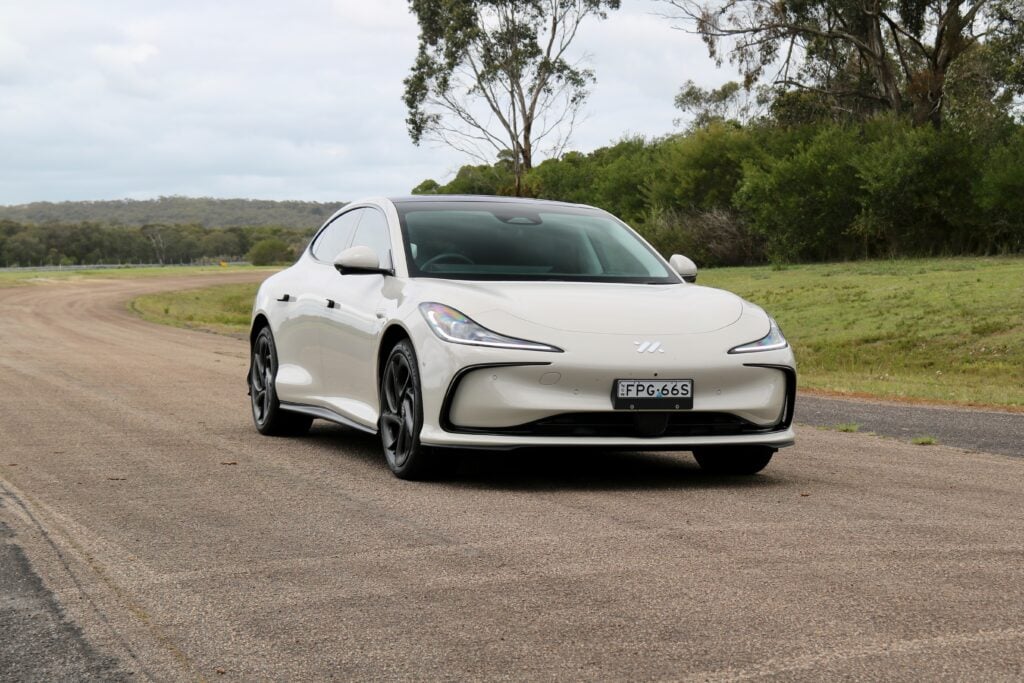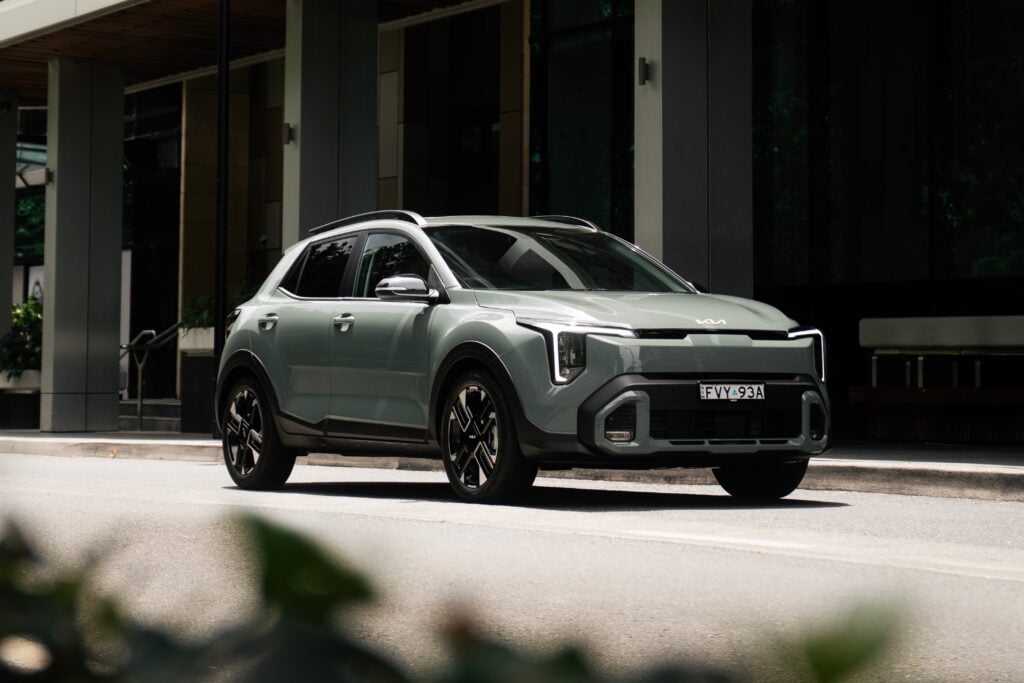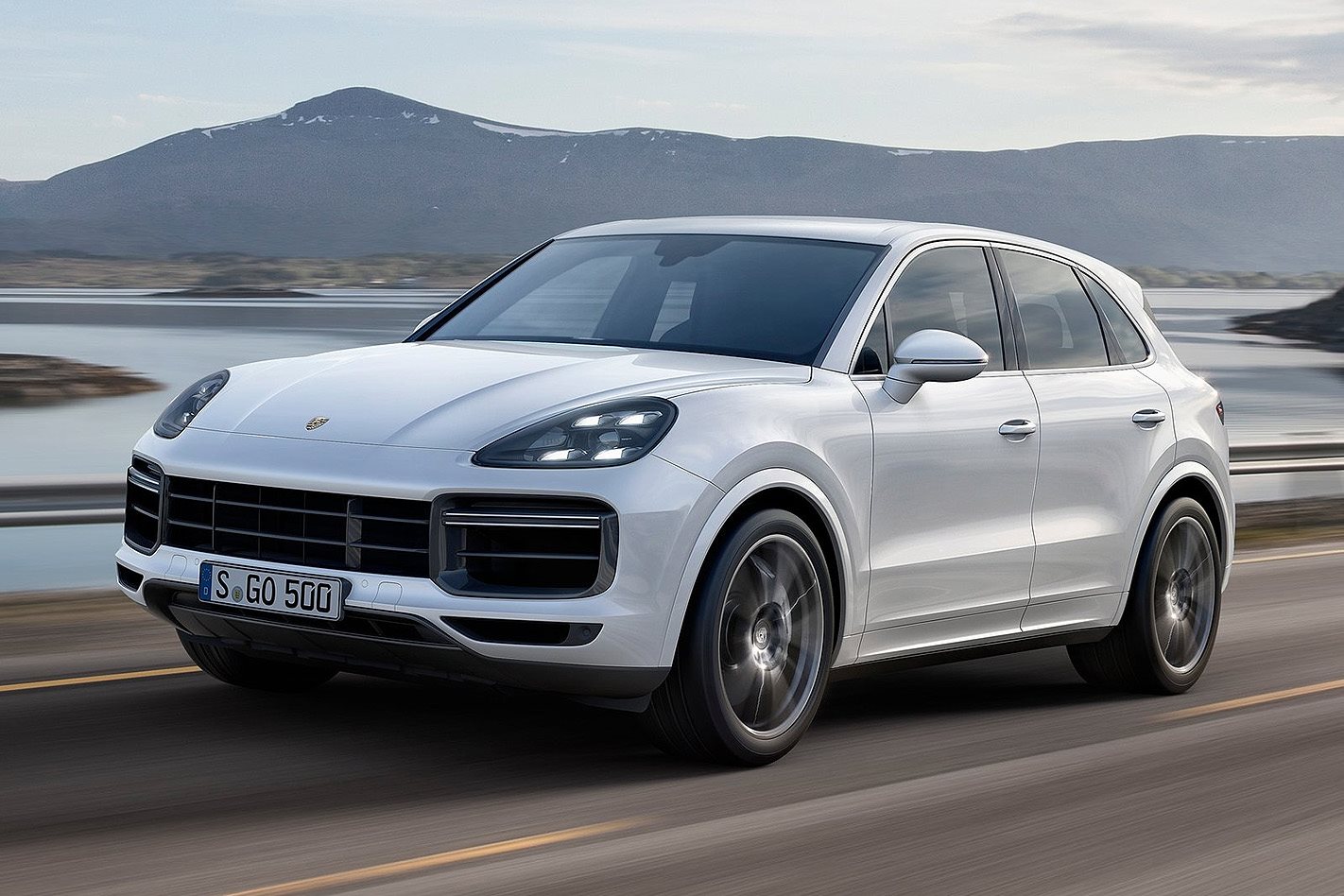
TELL ME ABOUT THIS CAR
Now in its third-generation, the Porsche Cayenne is 15 years into convincing consumers that a large SUV can be a hoot on the road, practical in the day-to-day grind and pack a little off-road promise into the bargain as well.
For the latest iteration, the Cayenne shares part of the MLB Evo modular platform that underpins the big Audi Q7, but a shorter wheelbase, new engine and a different approach to the luxury SUV recipe has taken the range-topping Turbo down a different avenue.
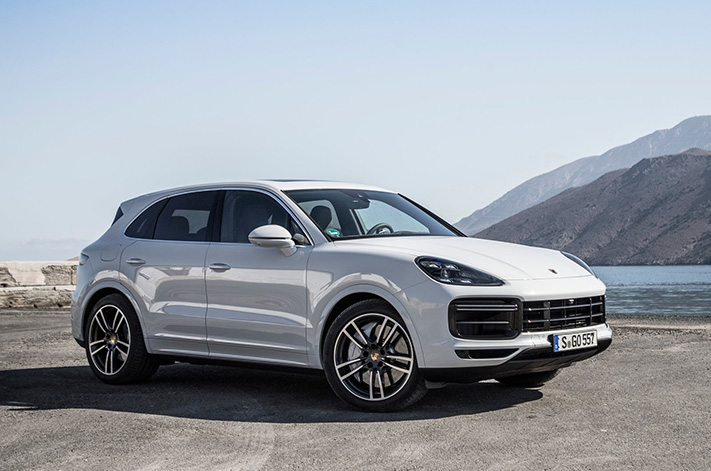
Sharing a powertrain with the Panamera Turbo, the Cayenne Turbo has a 4.0-litre twin turbo V8 petrol engine under its bonnet producing 404kW and potent acceleration, but it also introduces a number of new technologies as standard to boost its driver focus and appeal.
Pricing is yet to be confirmed for Australia but a large deviation from the current $237,500 asking price is not expected.
STRENGTHS
- With 770Nm of available torque and power hotting a whopping 440kW at 6000rpm, the Cayenne Turbo is savagely quick. With a full noise launch control start, acceleration off the mark is dizzying and feels every bit as quick as the official zero to 100km/h time of 3.9 seconds. The mighty engine also produces a serious V8 soundtrack that can be enjoyed both inside and out.
- It’s not just quick in a straight line either. Find a twisty road and the Turbo has a number of standard equipment tricks up its sleeve to increase the pace and driver engagement. Active roll stabilisation keeps the body surprisingly flat in fast corners; wider rear tyres result in a lively front-rear balance and a steering rear axle imparts a confidence boosting stability when at speed – as well as easy manoeuvring at low speeds.
- Bolted to the competent V8 is an equally impressive eight-speed automatic transmission that is intuitive and slick when left to its own devices, but can be switched to a manual mode for selecting gears with the steering wheel paddles.
- An active rear spoiler that changes pitch according to speed and driving style is the first of its kind fitted to an SUV. At low speed the fin stays flush to the boot lid but increases in angle as the pace builds to create downforce and even reduce cabin wind noise when the sunroof is open.
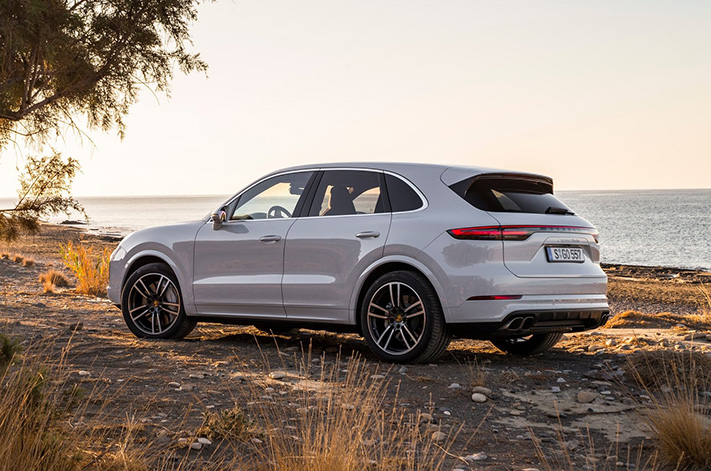
- New tungsten carbide coated brake discs are also standard and another first for the automotive world. The ultra-hard layer of tungsten increases rotor life by about 30 percent, reduces brake dust build up on the wheels and resists fade under hard braking more than conventional iron discs. The unique rotors also have an attractive mirror finish and will not rust like uncoated equivalents if left unused for extended periods.
- Unlike the first-generation Cayenne, the newest version is a real looker, taking some of its pretty smaller sibling’s Macan design cues for an elegant overall effect. The greatest revision is at the tail end where the design has a noticeable family resemblance thanks to the continuous light strap and slender light units.
- Interior quality is typically Porsche with top quality leather upholstery, excellent finish and materials, as well as understated design that manages to stand out without being showy.
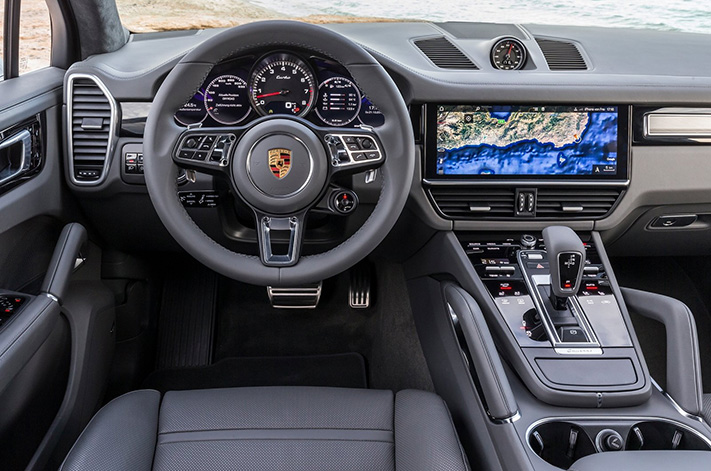
- A new 12.3-inch main display creates an impressive centrepiece with sharp graphics and intuitive access to the various information systems and applications. Where previous Porsche cabins were a muddle of switches and blanks in lower spec cars, the new version uses solid-state gloss panels with haptic reaction when touched. The result is a far cleaner dash and centre console without compromising function.
- Seating is executive class with supportive, waxy-leather accommodation in the front row and a pair of second row spots that offer almost as much comfort. The third centre seat does not offer the same comfort but is still a viable proposition for longer drives. Rear seat comfort is also boosted by four air vents, 12-volt power socket and a pair of USB connections.
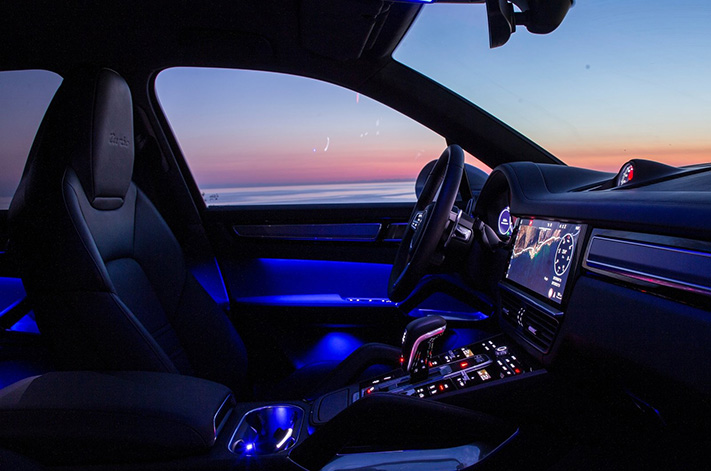
- Unlike some luxury driving focused SUVs, the Porsche also brags some genuine off-road ability as well. A special off-road drive setting increases ride height for maximum ground clearance and adjusts the engine and transmissions maps for optimum all-terrain performance. For a rapid street machine on 21-inch wheels and road tyres with sportscar corner carving ability, the Cayenne handles steep climbs on loose gravel and unforgiving rocks impressively. Perhaps more than most owners will ever fully exploit.
- Despite its large SUV proportions, the Cayenne can accommodate a maximum of five people. In a market where competitors (including high-end alternatives) can offer up to seven seats, the Porsche might lose a few sales to larger families. Porsche says it deliberately shortened the wheelbase to improve its driving dynamics in a trade-off between practicality and typical Porsche driving enjoyment.
- While Porsche claims an official combined fuel consumption figure of 11.7 litres/100km, in reality the figure higher than that. In practice, a figure lower than that should be possible but to drive the Turbo in a frugal manner is to waste its trump-card performance.
- In addition to fuel costs, the large diameter tyres will put a good dent in your wallet when it’s time to replace them with fresh rubber and, given the Cayenne’s physics-defying performance, that is likely to happen more regularly than sedate large SUVs.
Audi’s excellent SQ7 offers a high-performance large SUV with commendable on-road performance but while it is also powered by a 4.0-litre V8 turbo, it runs on diesel for more miles between servo visits. For something with decent V8 punch combined with some off-road ability, Range Rover’s Sport SVR brings one extra kilowatt over the Porsche but less torque from a supercharged petrol engine. Pricing is steep at $233,211, but Porsche is yet to reveal if the new Turbo will eclipse the current price of $237,500.



